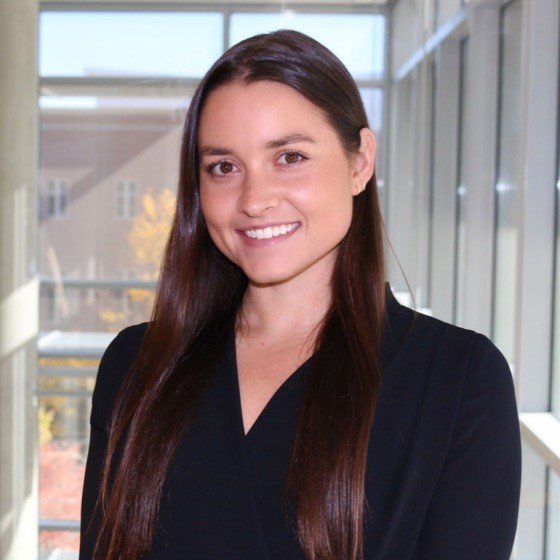A mission to promote excellence in stem cell research and applications to human health.
Founded in 2002, the International Society for Stem Cell Research (ISSCR) is an independent, global, nonprofit organization that promotes excellence in stem cell science and applications to human health. Our vision is a world where stem cell science is encouraged, ethics are prioritized, and discovery improves understanding and advances human health.
The ISSCR represents nearly 5,000 scientists, educators, ethicists, and business leaders across 80+ countries. Each ISSCR member makes a personal commitment to uphold the ISSCR Guidelines for Stem Cell Research and Clinical Translation, an international benchmark for ethics, rigor, and transparency in all areas of practice.

-
Stem cells are the body’s original cell types from which all human cell types develop, and they have potential for vast applications including understanding fundamental biological principles to improving human health. Decades of basic and ongoing research using stem cells has uncovered new principles in development, regeneration, aging, and disease, especially in humans.
And now, after decades of rigorous basic research, seminal discoveries, and major advances in technology, the field is poised to address some of the most intractable diseases of our time. Among them: type 1 diabetes, Parkinson’s disease, cardiac repair, and macular degeneration. Already, hundreds of thousands of people owe their lives to hematopoietic stem cell transplantation, the first successful stem cell therapy, and a growing number of others are benefiting from the use of stem cells for tissue grafts to treat bone, skin, and corneal diseases and injuries. The scientists behind this progress are those behind the ISSCR.
-
The ISSCR is the largest and most respected organization of stem cell researchers in the world. Each year, the society hosts a large annual meeting, several regional symposia, and a series of digital programs, shining a bright light on regions of the world excelling in research and technology. The objectives of each event are to facilitate the exchange of research findings to accelerate the field, mentor the next generation of scientists, and encourage rigor and ethical practice across all disciplines. Additionally, the ISSCR publishes Stem Cell Reports, an open access journal communicating advances in stem cell research and clinical applications. The society also provides educational resources for the public and educators.
-
The ISSCR sets widely adopted international guidelines addressing the diversity of cultural, political, legal, and ethical issues associated with stem cell research and its translation to medicine. The guidelines maintain and underscore widely shared principles in science that call for rigor, oversight, and transparency in all areas of practice. Each ISSCR member makes a personal commitment to uphold the ISSCR Guidelines for Stem Cell Research and Clinical Translation, when applying for membership. Additionally, the ISSCR is now developing quality standards for basic stem cell research to strengthen the rigor and reproducibility of laboratory research and ultimately the pipeline for therapies.
-
The ISSCR actively educates policy makers and regulators about the current state of stem cell research, advocates for funding, and promotes measures to prevent the marketing of unproven stem cell therapies to patients. The ISSCR's policy practice includes a fellowship program to mentor young researchers who wish to advocate for the field.
-
The ISSCR is committed to providing a safe and productive environment that fosters open dialogue and discussion and the exchange of scientific ideas, while promoting respect and equal treatment for all members of our community, free of harassment and discrimination. Not only does this enhance the stem cell research community and accelerate scientific advancement through the incorporation of multiple, diverse viewpoints, it is central to ensuring that people around the world are able to realize the benefits of the rapid advances in translational research to improve human health.
The society has convened meaningful conversations around Equity, Diversity, and Inclusivity (EDI), offers deep reductions in membership dues and meeting registration fees for scientists working in low resource countries, provides free virtual access to selected annual meeting sessions, prioritizes diversity in selection of abstracts, and has designed programs that explore advancing diversity in cell lines used in research.
Activities and Impact

ISSCR Headquarters Team
-

Meredith Albrecht
Meeting Planner
-

Keith Alm
CEO
-

Rutuja Sanjay Bagul
Northwestern Kellogg School of Management | Golub Capital Board Fellow
-

Chris Barry, PhD
Director of Strategic Partnerships
-

Liza Boscow
Senior Member Experience Coordinator
-

Andrew Bremer, PhD
Policy Manager
-

Denise de Villa
Policy Manager
-

Shuangshuang Du, PhD
Scientific Programs Manager
-

Dodie Dwyer
Administrative Coordinator
-

Yvonne Fischer
Managing Editor, Stem Cell Reports
-

Emilia Gilewicz
Operations Coordinator
-

Olivia Gomez
Abstract and Speaker Program Coordinator
-
Jay Jeon
Marketing and Communications Intern
-

Kym Kilbourne
Director of Media and Strategic Communications
-

Megan Koch
Senior Marketing Manager
-

Erika Kowalczyk
Director of Global Events
-

Tyler Lamb
Director of Policy
-

Jack Mosher, PhD
Scientific Director
-

Vihar Patel
Director of Technology and Business Operations
-

Andy Podczerwinski
Associate Business Development Manager
-
Kendra Prutton, PhD
Science Communications and Education Manager
-

Hunter Reed
Senior Marketing Coordinator
-

Glori Rosenson
Director of Outreach


